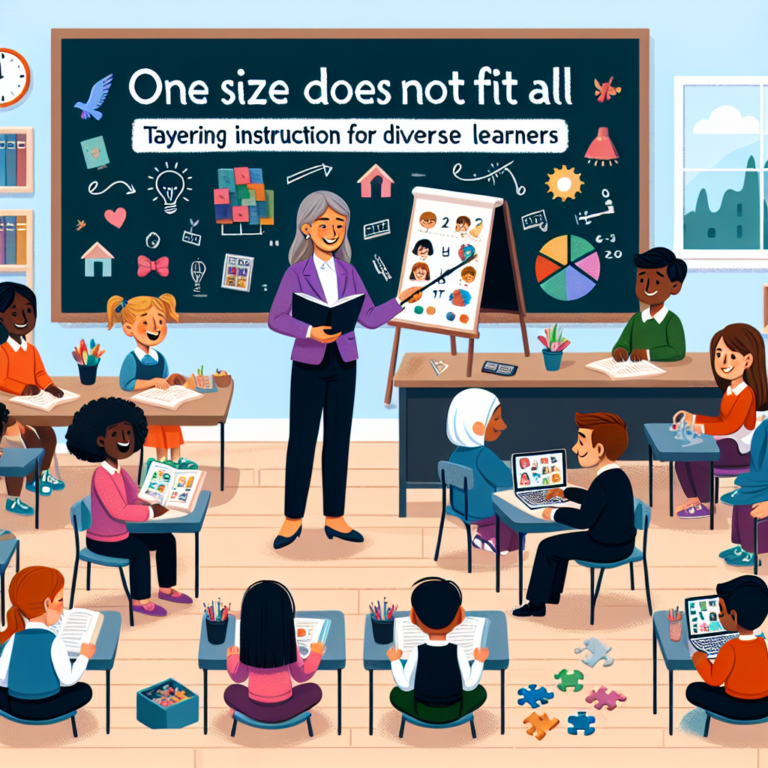
Introduction
Imagine a life where your perceived limitations dissolve, and your ambitions turn into concrete achievements. This transformative journey begins when you understand the vital connection between your self-concept and your success. "Unlocking Your Potential: The Connection Between Self-Concept and Success" is not just a phrase; it’s a powerful framework that can guide you toward your loftiest aspirations.
Self-concept, or how you view yourself, is the foundation upon which your achievements are built. This article will delve into the exciting interplay between self-perception and success, offering you unique insights, actionable strategies, and real-world case studies that illuminate this crucial relationship.
Understanding Self-Concept
What is Self-Concept?
Self-concept refers to the beliefs, thoughts, and feelings you hold about yourself. These perceptions shape your identity, influence your behavior, and can either propel you toward success or hold you back. Positive self-concept is characterized by self-esteem, self-worth, and a belief in one’s ability to achieve goals. In contrast, a negative self-concept often leads to self-doubt and missed opportunities.
The Importance of Self-Concept in Success
The relationship between self-concept and success is profound. Individuals who see themselves as capable and deserving of success are more likely to take risks, set ambitious goals, and pursue opportunities. Conversely, those who doubt their abilities often succumb to fear and inaction. Understanding this dynamic is crucial for anyone looking to unlock their potential.
Subheading: The Psychology Behind Self-Concept
The Role of Self-Talk
Our internal dialogue plays a significant role in shaping self-concept. Positive self-talk can boost confidence and motivate action, while negative self-talk can create a cycle of self-doubt.
Table 1: The Impact of Self-Talk on Self-Concept
| Self-Talk Type | Impact on Self-Concept | Resulting Behavior |
|---|---|---|
| Positive | Enhances self-esteem | Encourages risk-taking |
| Negative | Lowers self-esteem | Promotes inaction and fear |
Case Study: Oprah Winfrey
Oprah Winfrey’s journey from a challenging childhood to becoming a global icon exemplifies the powerful connection between self-concept and success. Winfrey’s belief in her worthiness fueled her determination, even in the face of adversity. She often emphasizes that understanding her self-concept allowed her to overcome obstacles and achieve extraordinary goals, thereby illustrating the premise of "Unlocking Your Potential: The Connection Between Self-Concept and Success."
Subheading: Shifting Your Self-Perception
Techniques for Enhancing Self-Concept
- Affirmations: Regularly practicing positive affirmations can reshape your self-image.
- Visualizations: Imagine your success vividly; this mental picture can be powerful.
The Importance of Peer Influence
Surrounding yourself with positive and supportive individuals can significantly influence your self-concept. A nurturing environment fosters growth and strengthens your self-belief.
Case Study: Serena Williams
Serena Williams’ steadfast belief in her ability skillfully underscores the vital relationship between self-concept and success. Throughout her career, Williams faced numerous challenges, both on and off the court. Yet, her unwavering commitment to her vision and self-worth allowed her to not only excel in sports but also embrace her role as an entrepreneur and advocate for social change.
Subheading: The Science of Self-Concept and Success
Neuroscience Insights
Recent studies in neuroscience suggest that our brains are wired to respond to our self-beliefs. When we cultivate a positive self-image, our brains trigger the release of dopamine, reinforcing constructive behaviors, and creating a feedback loop that further strengthens our self-concept.
Table 2: Neuroscience Findings on Self-Concept
| Self-Concept Type | Brain Activity | Outcome |
|---|---|---|
| Positive | Increased dopamine | Enhanced motivation |
| Negative | Cortisol spikes | Increased anxiety and inaction |
Emotional Intelligence
Emotional intelligence (EQ) plays a pivotal role in how we view ourselves and navigate the world. High EQ individuals often possess a healthier self-concept, leading to greater success in personal and professional realms.
Subheading: Overcoming Barriers to Self-Concept Development
Identifying Limiting Beliefs
Many individuals harbor limiting beliefs that inhibit their growth. Recognizing and reframing these beliefs is essential for developing a healthy self-concept.
Strategies for Change
- Seek Feedback: Constructive criticism can offer valuable insights into your self-perception.
- Embrace Failure: Viewing failures as learning opportunities can redefine your self-worth.
Case Study: J.K. Rowling
J.K. Rowling, author of the Harry Potter series, provides an inspiring storyline of overcoming limiting beliefs. Facing numerous rejections and hardships, Rowling’s persistent belief in her writing abilities ultimately led her to monumental success, epitomizing "Unlocking Your Potential: The Connection Between Self-Concept and Success."
Subheading: Setting the Stage for Success
Goal Setting
Having ambitious, yet attainable goals grounded in a positive self-concept can propel you toward success.
Tips for Effective Goal-Setting:
- SMART Goals: Ensure your goals are Specific, Measurable, Achievable, Relevant, and Time-bound.
- Visual Boards: Create a visual representation of your goals to reinforce your self-concept.
Continuous Learning
Commit yourself to lifelong learning to cultivate a growth mindset. Embrace challenges and seek new experiences to further enhance your self-concept.
Conclusion
Unlocking your potential starts with understanding and nurturing your self-concept. The connection between self-concept and success is not merely theoretical; it’s practical and impactful. By reshaping how you view yourself, you can conquer barriers, embrace opportunities, and ultimately achieve your goals.
As you embark on this transformative journey, remember the stories of Oprah Winfrey, Serena Williams, and J.K. Rowling. They remind us that success is within reach when we foster a positive self-image. So, take the first step, challenge your limiting beliefs, and start unlocking your potential today.
FAQs
What is self-concept?
Self-concept is the collection of beliefs and perceptions about oneself. It influences one’s behavior and decisions.How can I improve my self-concept?
You can improve your self-concept through positive affirmations, visualization techniques, and surrounding yourself with supportive individuals.Why is self-talk important?
Self-talk shapes your self-perception; positive self-talk can enhance self-esteem and promote proactive behavior.What role does emotional intelligence play?
High emotional intelligence contributes to a healthier self-concept, enabling better interpersonal relationships and overall success.- Can self-concept change over time?
Yes, self-concept can evolve through experiences, feedback, and deliberate efforts to foster positive beliefs about oneself.
Unlocking Your Potential: The Connection Between Self-Concept and Success is your pathway to discovering the success you deserve. Start today!

















